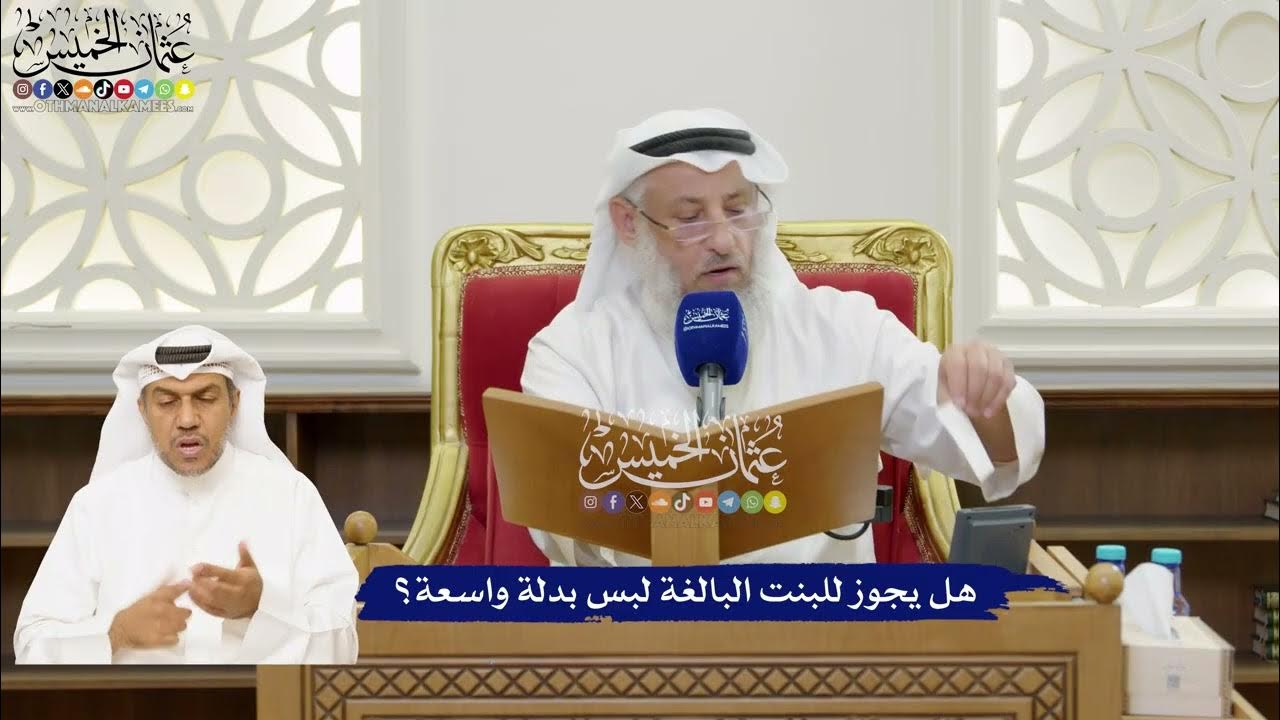Can I marry a woman who doesn’t do hijab? Will I be a dayyooth if I do? #Assim assim al hakeem
Summary
TLDRThe speaker addresses the permissibility of marrying a Muslim woman who does not wear the hijab or wears it improperly. While the marriage is considered valid, the speaker emphasizes that it may not be the ideal choice. He discusses the sinfulness of not wearing the hijab, explaining that such a woman is not necessarily doomed to Hell but is committing a sin. The speaker also highlights the concept of 'dayyuth'—a man who allows vice with his womenfolk—and cautions against labeling individuals too harshly based on their sins, promoting a balanced view of judgment.
Takeaways
- 😀 It is permissible to marry a Muslim woman, regardless of whether she wears the hijab properly or not.
- 🤔 A marriage contract is valid if it meets the conditions, including the bride's consent and the presence of two male witnesses.
- ⚖️ While it is allowed to marry a non-hijabi, it may not be the best choice, and it could lead to potential labels like 'dayyuth' (a man who tolerates indecency).
- 🧕 A woman who doesn't wear hijab is considered sinful, but it doesn't mean she is condemned to Hell forever.
- 🔥 The 'dayyuth' label applies to men who approve of indecency or sins committed by their female relatives, not just to men married to non-hijabis.
- 👁️ Allah will not look at, have mercy on, or purify the dayyuth in the afterlife, and he will face severe punishment.
- 🌍 A woman not wearing the hijab publicly is sinful according to the Quran and Sunnah, but this sin doesn't define her entire afterlife fate.
- 📿 Some non-hijabi women still engage in good deeds such as charity, prayer, and fasting, which reflect some level of faith (Iman).
- ❌ We should not hastily judge someone to be doomed for their sins, whether it's a woman not wearing hijab or a man shaving his beard.
- 🧠 One should be mindful of their own mistakes and not use them as a reason to dilute the severity of sins or harshly judge others.
Q & A
Is it permissible to marry a woman who doesn't wear hijab or doesn't wear it properly?
-Yes, it is permissible to marry a Muslim woman regardless of whether she wears hijab or not. The marriage contract remains valid as long as the required conditions are met.
Does a man who marries a woman who doesn't wear hijab automatically become labeled as a 'dayyuth' (one who accepts indecency)?
-No, marrying a woman who doesn't wear hijab does not automatically make a man 'dayyuth'. 'Dayyuth' refers to a man who approves of vice and indecency, which goes beyond a woman's dress code.
What does 'dayyuth' mean in the context of the hadith mentioned?
-'Dayyuth' refers to a man who approves of vice, indecency, or sinful behavior with his womenfolk. The Prophet specifically mentioned that such a person would not be looked at or purified by Allah and would face severe torment in Hellfire.
Is a woman who doesn't wear hijab automatically doomed to Hellfire?
-No, a woman who doesn't wear hijab is sinful, but this does not mean she is automatically doomed to Hellfire. She may have other good deeds, and only Allah knows her fate.
Is wearing hijab considered mandatory in Islam?
-Yes, wearing the hijab is obligatory in Islam according to the Quran, Sunnah, and the consensus of scholars. A woman who does not wear it is committing a sin.
Can a woman who doesn't wear hijab still be a practicing Muslim?
-Yes, a woman who doesn't wear hijab can still have Iman (faith) and perform other good deeds like giving charity, fasting, and praying, although she is committing a sin by not wearing the hijab.
What is the role of the father in an Islamic marriage contract?
-The father's role in an Islamic marriage is to propose, usually saying something along the lines of 'I give you my daughter in marriage'. This is one of the pillars of the marriage contract.
What are the essential pillars of a valid Islamic marriage?
-The essential pillars of a valid Islamic marriage include the proposal from the father, the acceptance from the groom, and the presence of two male Muslim witnesses.
What is the broader understanding of indecency or 'fahisha' in relation to women in the hadith?
-Indecency ('fahisha') refers to more than just a woman not wearing hijab. It includes behaviors like pre-mixing with non-mahram men, traveling alone with them, dancing, or engaging in other inappropriate behaviors.
How should a Muslim view people who commit sins like not wearing hijab or shaving their beard?
-A Muslim should avoid looking down on others who commit sins. Instead, they should focus on their own shortcomings and recognize that the person may have other good deeds that outweigh their sins. Judgment should be left to Allah.
Outlines

This section is available to paid users only. Please upgrade to access this part.
Upgrade NowMindmap

This section is available to paid users only. Please upgrade to access this part.
Upgrade NowKeywords

This section is available to paid users only. Please upgrade to access this part.
Upgrade NowHighlights

This section is available to paid users only. Please upgrade to access this part.
Upgrade NowTranscripts

This section is available to paid users only. Please upgrade to access this part.
Upgrade NowBrowse More Related Video

Don't Force The Hijab, Do THIS Instead | Nouman Ali Khan

Hukum Nikah Beda Agama - Ustadz Adi Hidayat

46 - هل يجوز للبنت البالغة لبس بدلة واسعة؟ - عثمان الخميس

Islam, Interfaith Marriage and Misogyny

What it's like to be a Muslim in America | Dalia Mogahed

Pernikahan Beda Agama (Wanita Muslimah VS Pria Non-Muslim)
5.0 / 5 (0 votes)